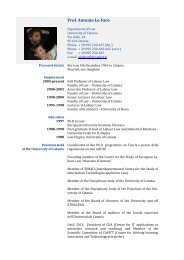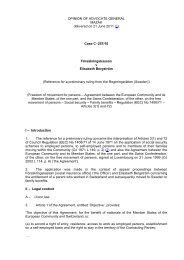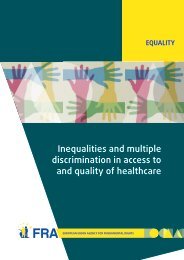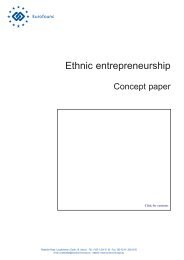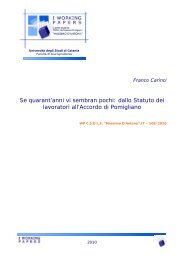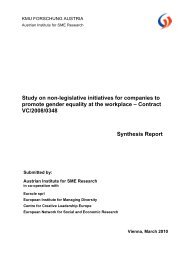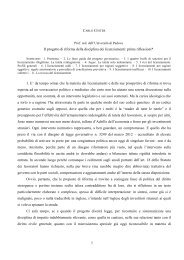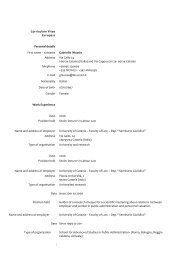Full text - European Trade Union Institute (ETUI)
Full text - European Trade Union Institute (ETUI)
Full text - European Trade Union Institute (ETUI)
Create successful ePaper yourself
Turn your PDF publications into a flip-book with our unique Google optimized e-Paper software.
Temporary agency work in the <strong>European</strong> <strong>Union</strong><br />
the minimum wage of temporary workers is no longer the wage paid to the<br />
employees of the user undertaking, but the national minimum wage.<br />
Restrictions or prohibitions (Article 4)<br />
Article 4 provides that restrictions and prohibitions with regard to temporary<br />
agency work should be reviewed and so as to be justified only on the ground<br />
of general interest regarding, in particular the protection of workers, the requirements<br />
of safety and health at work and the need to ensure that the labour<br />
market functions properly and that abuses are prevented (recital 18). Member<br />
states can be divided into four categories.<br />
First, in some Member States, reviews of national restrictions or prohibitions<br />
are reported to be in progress, but no changes are yet foreseen, mainly due to<br />
strong disagreement between trade unions and employers’ organisations. For<br />
instance, the issue is currently being discussed in Belgium, but it appears to<br />
be the most difficult piece of law to implement, as there is no common view<br />
at any level. Hopes are vested in the Court of Justice’s case law not lifting restrictions<br />
(the Hennigs case 3 may justify this hope). In Belgium there is major<br />
lobbying from the employers’ associations to lift restrictions or prohibitions.<br />
Nevertheless, the social partners have been involved in the preparatory work<br />
of the bill transposing the Directive, and they are still negotiating on various<br />
questions, such as the creation of a new permissible ground for temporary<br />
agency work, allowing the conclusion of a permanent contract.<br />
In the Netherlands, the government recently asked the Dutch Labour Foundation<br />
(Stichting van de Arbeid) to review the restrictions and prohibitions<br />
in the Collective Labour Agreements. The Dutch government is reviewing restrictions<br />
and prohibitions in legislation. In this review, the Labour Foundation<br />
also has to be consulted. The review is still in discussion with employers,<br />
who want to lift as many such prohibitions and restrictions as possible. The<br />
Dutch Federation of <strong>Trade</strong> <strong>Union</strong>s, FNV (Federatie Nederlandse Vakbeweging),<br />
is of the opinion that restrictions and prohibitions have to be understood<br />
in the general con<strong>text</strong> of the Directive. Employment contracts of indefinite<br />
duration are the general form of employment relationship. In some cases,<br />
clauses in Collective Labour Agreements about temporary agency workers are<br />
to be conceived as conditions instead of restrictions and prohibitions. Thus,<br />
most restrictions and prohibitions can be justified on grounds of general interest.<br />
Current restrictions in Austria are under scrutiny but any change of legislation<br />
proposed by the Chamber of Industry and employers’ associations would<br />
need the agreement of the trade unions and the Chamber of Labour. Both<br />
3. CJEU case C-297/10 (Sabine Hennigs v Eisenbahn-Bundesamt) in which the CJEU, in a case<br />
dealing with non-discrimination on grounds of age based on Article 21 Charter, held that the<br />
respective national measures at stake were not adequate or necessary to achieve the aim pursued,<br />
and therefore they lacked proper justification.<br />
WP 2012.12 33




